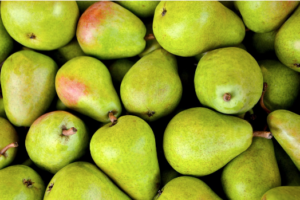Since concerns about the environment are at an all-time high, creating environmentally friendly food products is a good way to show that your startup cares about the planet. We’ve covered ways you can do that with biodegradable food packaging, but what about the food itself? What kinds of foods and ingredients have the least negative impact on the environment? Being mindful of this not only benefits our world, but can help attract customers who value environmentalism. Let’s take a look at some environmentally friendly food.
Fruits and Veggies
Many consumers look for the organic label when browsing food products. Organic foods are \perceived as healthier, tastier, and better for the environment than foods that were grown with synthetic fertilizers and pesticides. Using organic ingredients is a great way to demonstrate that your brand is environmentally friendly, but you can go one step further by using certain veggies and fruits that have less impact on the environment than other crops!
- Garden Peas – As their own source of nitrogen, peas require less fertilizer. Furthermore, they help enrich the soil in which they’re planted!
- Onions – Foods with a stronger flavor profile tend to repel bugs and pests naturally. With an abundance of sulfur, onions make bugs cry more than they do humans!
- Beans – Their protein helps your sustainable lifestyle, and their long shelf life leads to less food waste.
- Potatoes – Needing less water and fertilizer than other vegetables, potatoes also produce compounds that keep insects away. Their crop yield also tends to be high.
- Broccoli – Producing natural compounds found in some industrial pesticides, broccoli can serve as a natural solution to pest control.
- Apples – The more water needed to keep foods healthy, the more energy needed. Apples don’t need a lot of water (only 85 gallons per pound) or fertilizer to grow.
- Oranges – The only time comparing apples and oranges makes sense. Needing only 55 gallons of water per pound (contrast that with the 2,847 gallons needed for the cocoa bean!), ecology and oranges are a natural match.
- Pears – With low nutrient requirements, pears also ripen while they’re in storage. This helps the environment and your wallet.
Meat and Dairy
Believe it or not, vegetables and fruits aren’t the only environmentally friendly food groups around.
- Small fish – the lower on the food chain, the better. Using smaller fish in your fishy food product means having less impact on the environment.
- Soft cheeses – The dairy industry uses enormous amounts of energy and creates enormous amounts of waste. If you want to cultivate a sustainable lifestyle, the less dairy the better. Softer cheeses require less energy to make than others.
Create Environmentally Friendly Food Products with HSR
Now, the only problem is conveying to consumers that your brand is all about saving the planet! You need a food product development consultant who can effectively market your food to customers who care about these issues. HSR ASSOCIATES specializes in developing new food products and bringing them to market. We provide all the services necessary, from Kitchen To Marketplace. Contact us today at steve@hsrassociates.net.
More great ideas to come from our food product development experts! Stay tuned…………..

